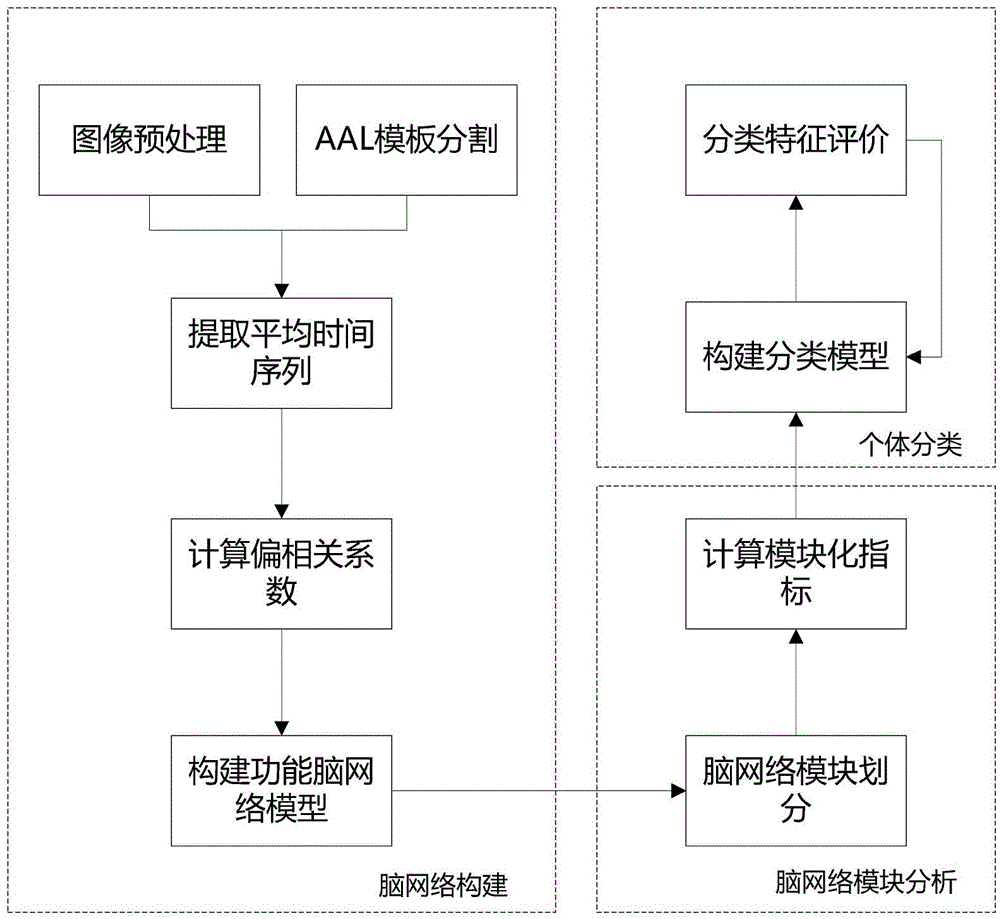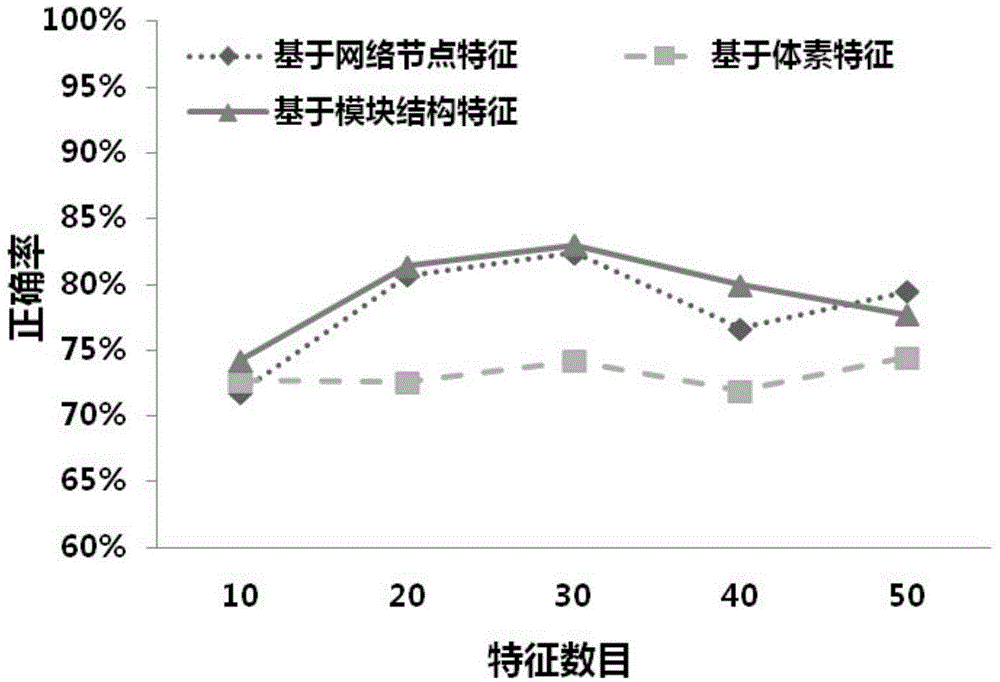Classification of fMRI data based on structural features of brain network modules
A technology of functional magnetic resonance and modular structure, which is applied in special data processing applications, electrical digital data processing, character and pattern recognition, etc., and can solve problems such as unsatisfactory classification results and inability to classify magnetic resonance images.
- Summary
- Abstract
- Description
- Claims
- Application Information
AI Technical Summary
Problems solved by technology
Method used
Image
Examples
Embodiment Construction
[0063] The present invention will be further described below in conjunction with accompanying drawing and specific embodiment:
[0064] A fMRI image data classification method based on the structural characteristics of the brain network module proposed by the present invention uses the brain network module structure to analyze the local aggregation characteristics of the network, reveal the potential relationship between structure and function, and effectively improve the accuracy of data classification. accuracy.
[0065] The specific implementation process of the functional magnetic resonance imaging data classification method based on the structural characteristics of the brain network module of the present invention is as follows: figure 1 shown, including the following steps:
[0066] Step S1: Preprocessing the resting-state fMRI images, then segmenting the images into regions according to the selected standardized brain atlas, and finally extracting the average time ser...
PUM
 Login to View More
Login to View More Abstract
Description
Claims
Application Information
 Login to View More
Login to View More - R&D
- Intellectual Property
- Life Sciences
- Materials
- Tech Scout
- Unparalleled Data Quality
- Higher Quality Content
- 60% Fewer Hallucinations
Browse by: Latest US Patents, China's latest patents, Technical Efficacy Thesaurus, Application Domain, Technology Topic, Popular Technical Reports.
© 2025 PatSnap. All rights reserved.Legal|Privacy policy|Modern Slavery Act Transparency Statement|Sitemap|About US| Contact US: help@patsnap.com



